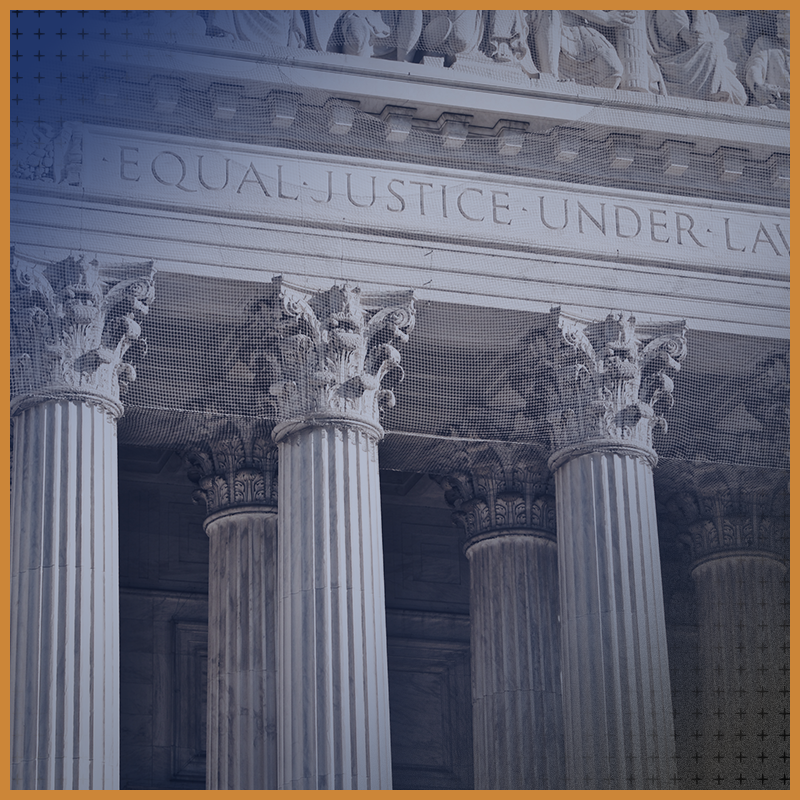
Monmouth County Drug Crime Attorney
Legal Representation in Middlesex County & Across New Jersey
Drug charges, from possession to distribution, can result in life-altering penalties. The most serious is the possibility of a jail sentence. A conviction also brings hefty fines and a permanent record, which can limit your job and housing options long after serving your sentence.
Every defendant deserves a strong drug crime attorney, and that’s why Law Offices of Carlos Diaz-Cobo stands ready to serve. Our firm helps clients in Monmouth County, Middlesex County, and across New Jersey.
Attorney Diaz-Cobo is one of the few Latino criminal defense lawyers in this area. He helps both Spanish-speaking and English-speaking clients. Since founding our firm in 2006, Attorney Diaz-Cobo has built an impressive record and earned recognition from peers statewide and nationally. His work has been featured in major media such as ABC, NBC, CNN, Fox, Asbury Park Press, Star Ledger, the NY Times, and the Wall Street Journal.
We value the feedback from people we have represented—Attorney Diaz-Cobo has earned positive reviews for his commitment to defending clients’ freedom.
Call Law Offices of Carlos Diaz-Cobo at (848) 207-2709 or contact us online today for a free consultation. Learn how our drug crime lawyer in Monmouth County can help you address the challenges of drug charges.
Types of Drug Charges We Handle in Monmouth County
Drug offenses in New Jersey fall into several categories based on the drug type, quantity, and alleged conduct. Our Monmouth County drug lawyer can help defend against charges such as:
- Drug Possession – Having illegal substances on your person or in a controlled area; penalties depend on drug type and amount, with harsher consequences for heroin or cocaine.
- Possession with Intent to Distribute – Charged when prosecutors believe drugs were meant for sale; evidence often includes larger quantities, packaging materials, or cash.
- Drug Distribution and Trafficking – Involves selling, transporting, or moving large quantities of drugs; among the most serious charges, often carrying mandatory prison terms.
- Drug Manufacturing – Producing or cultivating illegal substances, such as methamphetamine labs or marijuana grow operations; penalties are severe and may involve federal charges.
- Prescription Drug Offenses – Includes illegal possession, use, or distribution of medications like opioids, Xanax, or Adderall; can involve doctor shopping, forged prescriptions, or sales.
- Paraphernalia Charges – Possessing items linked to drug use (e.g., syringes, bongs, grinders); often accompanies other drug charges and may support claims of use or distribution.
Schedule of Drugs in New Jersey
New Jersey law sorts controlled substances into five Schedules, based on medical uses and the potential for abuse or dependency. Knowing a drug’s classification shapes the defense strategy. By determining the Schedule quickly, we can focus our approach for each charge.
This schedule plays a key role in deciding what charges are filed and the severity of the sentence. The higher the schedule, the more serious the potential consequences:
- Schedule I: These drugs have a high potential for abuse, no accepted medical use in the United States, and no safe usage under medical supervision. Examples include heroin and LSD.
- Schedule II: Drugs in this category also have a high potential for abuse, but may have limited medical uses under strict supervision. Examples include cocaine and methamphetamine.
- Schedule III: These drugs bring a moderate to low risk of dependence and have accepted medical uses. Anabolic steroids and testosterone are Schedule III substances.
- Schedule IV: These have a lower potential for abuse and are widely used for medical care. Xanax and Valium are common examples.
- Schedule V: The lowest classification includes substances with minimal abuse risk and accepted medical usage. Some over-the-counter medications with codeine fall under this category.
Penalties for Drug Crimes in Monmouth County
Drug offenses can lead to serious, life-changing penalties, especially for those with prior convictions. Penalties typically include:
- Jail or Prison Time: The sentences for drug crimes vary by the degree of the offense:
- First-Degree: 10 to 20 years in prison and a fine of up to $500,000.
- Second-Degree: 5 to 10 years in prison and a fine of up to $150,000.
- Third-Degree: 3 to 5 years in prison and a fine of up to $35,000.
- Fourth-Degree: Up to 18 months in prison and a fine of up to $15,000.
- License Suspension: Often mandatory, even for non-driving offenses
- Probation: An alternative to jail but still highly restrictive
- Court-Ordered Rehab: Required in some possession cases
After someone serves a sentence, a drug conviction can still affect nearly every part of life. Many employers run background checks and may turn away applicants with criminal records. Landlords can deny rental applications, and students may lose financial aid. Non-citizens face even greater risks, as a drug conviction can cause deportation or block future immigration benefits.
That’s why building a solid defense means protecting more than just your freedom—it's about your long-term future. A Monmouth County drug crime attorney helps you navigate these challenges with careful strategy.

When facing serious criminal charges, you need a relentless, trial-ready defense. As a Certified Criminal Trial Lawyer and award-winning attorney, Carlos Diaz-Cobo has the experience, reputation, and courtroom skill to fight for the best outcome in your case.

How The Law Offices of Carlos Diaz-Cobo Can Help
Law Offices of Carlos Diaz-Cobo carefully reviews whether the police followed the required procedures in gathering evidence. This means checking police reports, body camera recordings, and any witness statements for signs of misconduct. Our detailed approach reflects our commitment to a thorough and effective defense.
We rely on a deep understanding of criminal practice in Monmouth County courts. Building a legal strategy means knowing both the law and how judges at the Freehold courthouse and elsewhere apply it. Because we keep up with local procedures, court expectations, and ongoing legal education, we can offer support tailored for this region and its courts.
Monmouth County often works with state and federal drug task forces on multi-jurisdiction investigations. Spotting procedural errors across agencies can make it possible to challenge questionable evidence. Our dedication to staying current on the law helps those charged with drug crimes throughout Monmouth County.
Get an Experienced Lawyer You Can Trust in Monmouth County
Law Offices of Carlos Diaz-Cobo has served Monmouth County since 2006, helping people level the playing field in a system that often feels stacked against them. We know the law, court procedures, investigations, and what it takes to succeed at trial. If you or someone you care about faces drug charges in Monmouth County, turn to us for honest answers and steady support.
Our long-standing presence helps us provide strategic, effective representation for local clients. With Law Offices of Carlos Diaz-Cobo, you get not only legal guidance but also consistent support during a difficult time, built on a real commitment to your future.
Contact Law Offices of Carlos Diaz-Cobo today by calling (848) 207-2709. Discover how our approach and commitment to justice can make the difference in your legal matter.
